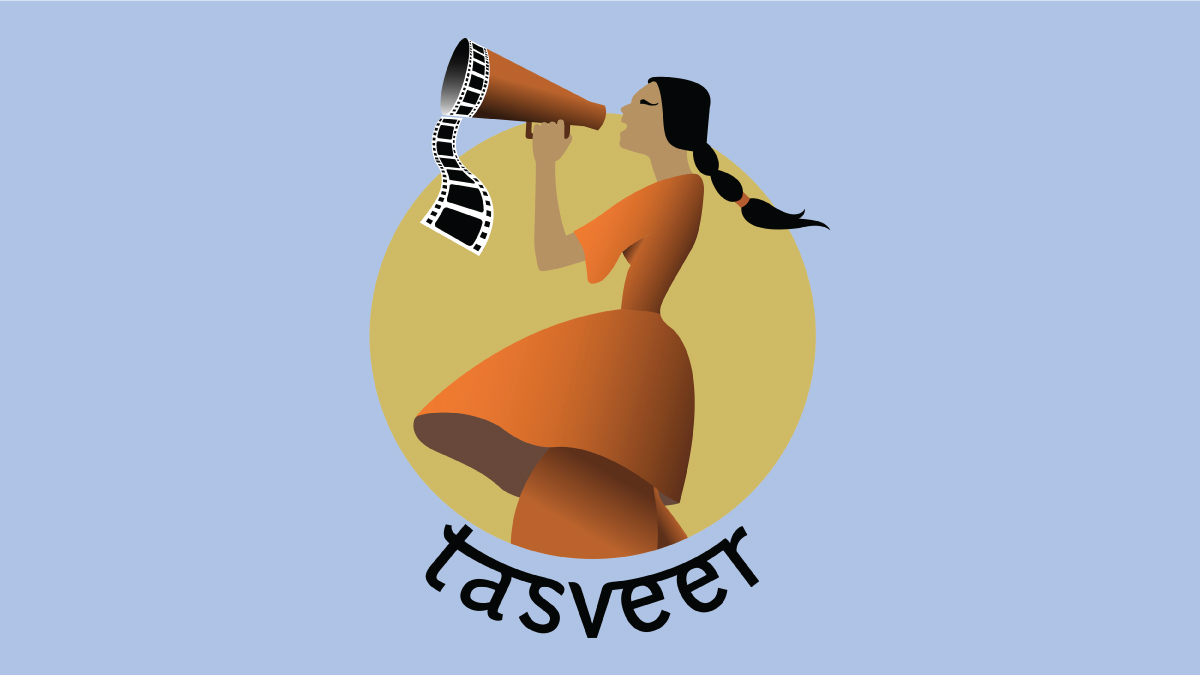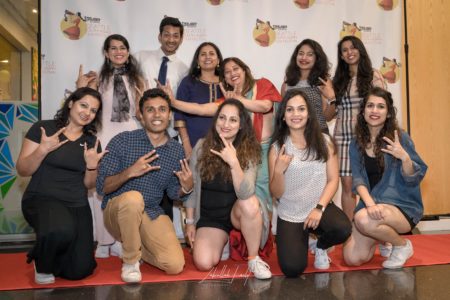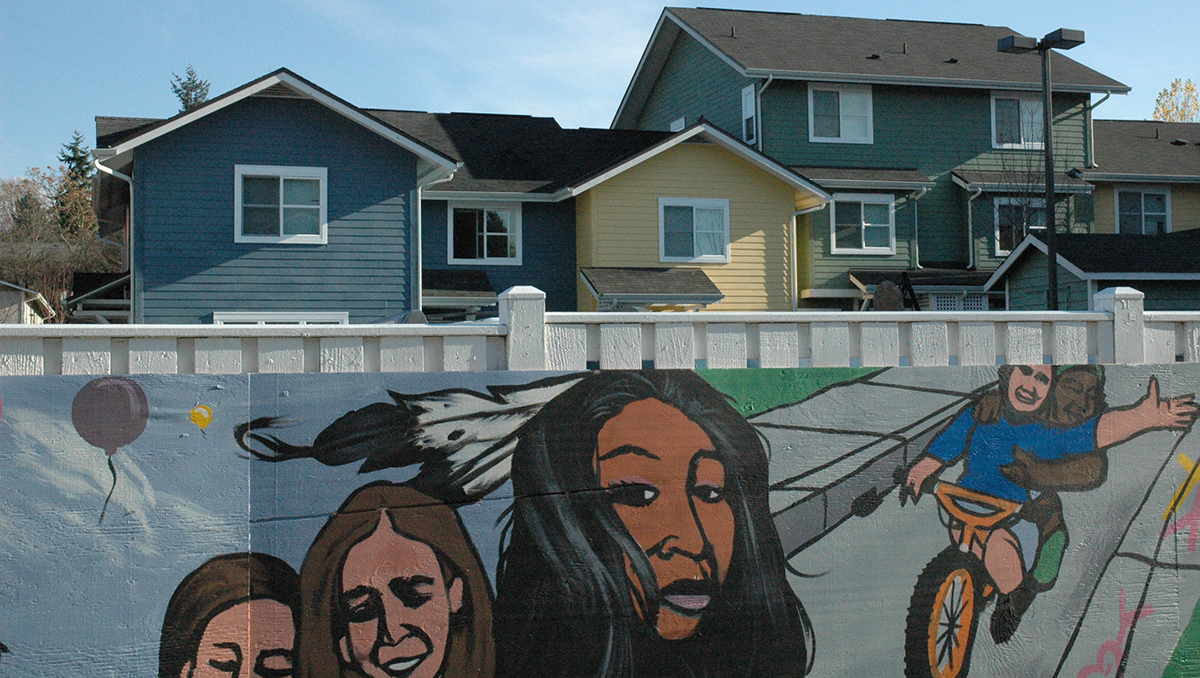
In celebration of Asian American, Native Hawaiian, and Pacific Islander (AANHPI) Heritage Month, we are hosting a series of profiles and stories to amplify and honor people, businesses, organizations, and projects connected to the history of Seattle’s AANHPI community.
Too often, the stories and voices of South Asians are not represented in conversations around the Asian American and Pacific Islander (AAPI) experience. Tasveer, a local non-profit organization is changing that. The organization was founded in 2002 by Farah Nousheen and Rita Meher, two South Asian immigrant women who experienced hate crimes in the wake of 9/11. For the past two decades, Tasveer has used storytelling to help change narratives, foster a deeper understanding of South Asian culture, and build a more just and sustainable society.
We recently checked-in with Sanhitha Sanugula, Marketing Manager at Tasveer, to learn more about their work and see how the organization has navigated this challenging year. Excerpts from our interview are below:
Tell us a little bit about Tasveer. What are you most proud of?
Tasveer is a non-profit organization that hosts one of the biggest platforms in lending a voice and an ear to inspire social change in the larger Seattle community. Our mission is to inspire social change through thought-provoking South Asian films, art, and storytelling.

We are most proud of the impact we have created by serving South Asian communities in the PNW and beyond. Standing firmly at the crossroads of social justice and the arts, we have uplifted South Asian voices through radically independent South Asian films, literature, and personal storytelling programs. With 75% of our audience identifying as South Asian, Tasveer provides a mirror for those who rarely see their lives portrayed accurately in media, and a window for non-South Asians into the diversity and complexity of South Asian experiences.
How have the incidents of the past year impacted Tasveer and your work?
Tasveer has experienced a rollercoaster of ups and downs throughout the events of the past year. Our community saw a rise in racism as anti-Asian sentiment and white supremacy increased during lockdown and leading up to the election. Most recently, hate crimes against South Asians have spiked with xenophobic acts against immigrants as the COVID crisis in India rages. Tasveer lost its office space due to COVID closures, as well as nearly all event revenue when in-person gatherings were banned.
Despite these challenges, Tasveer staff rose to the occasion and presented our most impactful year of programming to date. Yoni Ki Baat was presented virtually, sharing the powerful stories of South Asian women. Tasveer spearheaded the creation and presentation of the Coalition of South Asian Film Festivals, leading seven organizations (who otherwise would have cancelled their programs) to come together and present the largest South Asian diaspora film festival in the world that drew global audiences. The inaugural grant for Tasveer Film Fund went to a young filmmaker duo whose idea for a queer sci-fi will be now premiered at our 2021 film festival. Thirty-five South Asian authors from around the world joined our virtual, week-long literature festival. We were able to increase the number of people we employed, primarily women of color. Additionally, Tasveer partnered with the City of Seattle and the State of Washington to distribute valuable information to our community about Census 2020 and the COVID-19 vaccine.
What is on your mind as we honor Asian American Pacific Islander Heritage Month this year?
Despite the fact that Indians are the fastest growing community in the Pacific Northwest, there is a general lack of awareness and cultural understanding. Misrepresentations in media further harmful stereotypes, while educational and cultural institutions fail to fill the gaps. The term Asian is widely interpreted as East Asian, leaving the stories of South Asians out of historical and present-day narratives. This produces real-world hate and ignorance toward South Asians.
Tasveer is doing continuous work to change systems of misinformation by providing truthful depictions of South Asians through film, literature, and storytelling, and facilitating dialogues that cut deep to the core of issues. Executive Director Rita Meher says – “Our job will never be complete; we will always have to work to maintain the progress we’ve made.”
What are your hopes for the future? Both for Tasveer and for Seattle?
At Tasveer’s inception, the hope was to elevate conversations about mainstream media stereotypes. We aspire to continue creating fresh and innovative platforms to bring the South Asian community together. Through the Tasveer South Asian Film Festival, Aaina and Yoni ki Baat, Tasveer South Asian LitFest, and more, we continue to incorporate visual and narrative art to reflect and highlight the issues and dilemmas faced by our community. This work is ongoing in order to make King County a safer and more welcoming place to live, and to take away the feeling of being “other”. South Asians want to feel fully integrated into the King County community and be celebrated for all the beauty and diversity they bring to the world.
You can learn more about Tasveer and get involved in their work at tasveer.org/.
This AAPI Heritage Month profile was recommended by Minh Chau Le, a member of the Seattle Department of Neighborhoods Historic Preservation staff.


